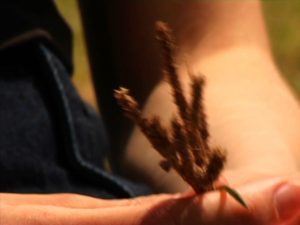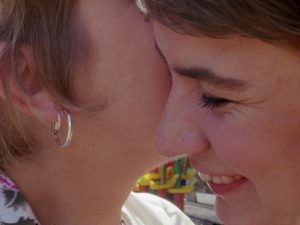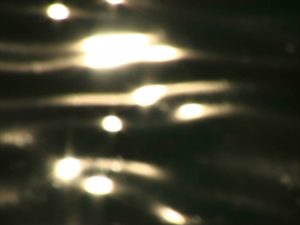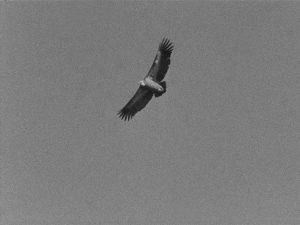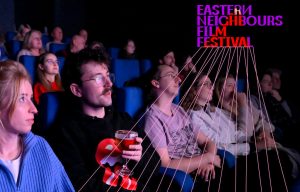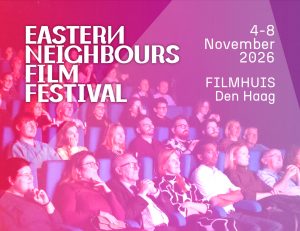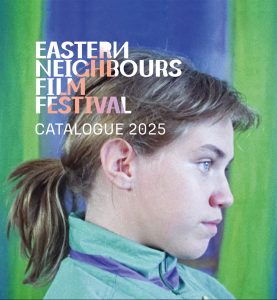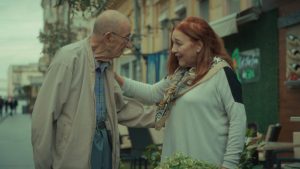
Between Film and Art
ENFF presents ’Between Film and Art’, a programme dedicated to experimental and artist-driven film. The curated program features cinema that pushes the boundaries of today’s forms and methods, engaging the broader Eastern European region’s diverse and unruly traditions of ‘other cinema.’
This year brings together two singular and lauded filmmakers, Ewelina Rosińska and Vadim Kostrov. Both work closely with their mediums – Rosińska with the material rigour and rhythms of the legendary Bolex 16mm camera, into an almost musical vision of her surrounds; Kostrov by pushing MiniDV to its outer limits and back, discovering within its low definition a space that is exactingly emotional.
Like a photo book, Earth in the Mouth (20 min, 2020) by Rosińska creates new images and relationships between them, resulting in a journey of impressions where the outlines of the world undulate. Between faith, anarchism and tourism, in Poland or Germany, between simple gestures and everyday life in Portugal, Brazil and Greece, inventing itself as if goes along
Rosińska’s Vultures (3 min, 2021) is a single roll of film that shows an encounter with a group of birds. As the vultures circle overhead to discern the humans below, the humans frame them with their camera. An imperfect choreography unfolds: circles in the sky and rectangles from the ground, each pursuing and slipping past the other.
Éveil (11 min, 2025) belongs to Kostrov’s recent series of silent exile works shot on MiniDV, where abstraction becomes a mode of processing loss into imagination. Shot in late February 2025 in northern Paris, the first breeze of spring after winter. A cinema of impressions: foliage, light, and surfaces dissolve into abstraction and perceptual play. A dawning where grief and disillusionment meet a fragile opening toward transformation.
Donnez-nous la paix (15 min, 2025)– Kostrov’s latest, a world-premiere – was shot in Roscoff and Île-de-Batz, Bretagne, France. Captured briefly along the way, Kostrov and his companions move through the unknown landscape in displacement. Their contours blur under his camera’s inspection and movement – looking not at, but into, with and through – giving physical presence to the gestures and textures of the world. The title comes from an inscription found on a cottage there – from another time, another context: the same antiwar plea.
— The screening will be followed by a Q&A with the filmmakers and programmer.
Note: The program of ‘Between Film and Art’ has recently been changed. For more info, read the festival statement on this. Thanks to the filmmakers and audiences.
Q&A with the directors with Ewelina Rosińska and Vadim Kostrov
Saturday, 8 November at 18:30h
Sunday 9 November at 14:00h


